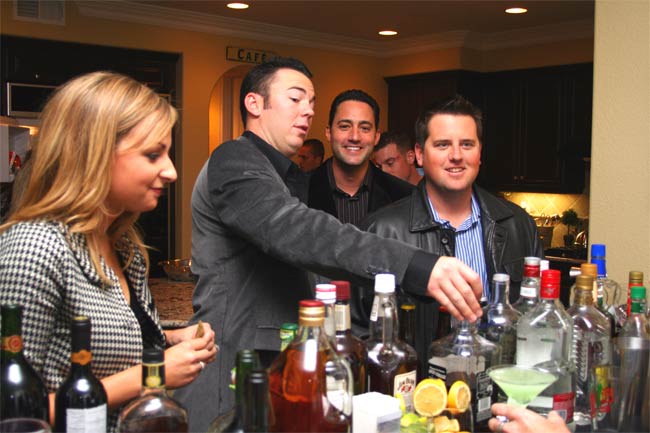Study: College Breeds Alcoholism

Get the world’s most fascinating discoveries delivered straight to your inbox.
You are now subscribed
Your newsletter sign-up was successful
Want to add more newsletters?

Delivered Daily
Daily Newsletter
Sign up for the latest discoveries, groundbreaking research and fascinating breakthroughs that impact you and the wider world direct to your inbox.

Once a week
Life's Little Mysteries
Feed your curiosity with an exclusive mystery every week, solved with science and delivered direct to your inbox before it's seen anywhere else.

Once a week
How It Works
Sign up to our free science & technology newsletter for your weekly fix of fascinating articles, quick quizzes, amazing images, and more

Delivered daily
Space.com Newsletter
Breaking space news, the latest updates on rocket launches, skywatching events and more!

Once a month
Watch This Space
Sign up to our monthly entertainment newsletter to keep up with all our coverage of the latest sci-fi and space movies, tv shows, games and books.

Once a week
Night Sky This Week
Discover this week's must-see night sky events, moon phases, and stunning astrophotos. Sign up for our skywatching newsletter and explore the universe with us!
Join the club
Get full access to premium articles, exclusive features and a growing list of member rewards.
College can be a blast, but it can also create alcoholics.
Genetics is known to play a role in the risk of alcoholism. A new study, detailed in the June issue of the journal Alcoholism: Clinical and Experimental Research, suggests that college attendance is conducive to and exacerbates the innate predisposition of some young adults to become heavy alcohol users.
“If your genetic makeup predisposes you toward drinking, it may be even more enhanced by attending college,” said lead scientist David Timberlake, an epidemiologist at the University of California at Irvine.
College drinkers
A 1999 Harvard University study revealed that 44 percent of college students surveyed reported engaging in binge drinking in the previous two weeks, with binge drinking defined as consumption of five drinks within two hours for men and four drinks for women. Among U.S. college students, fatal alcohol-related injuries increased from 1,500 in 1998 to more than 1,700 in 2001, according to the National Institutes of Health.
In the new study, Timberlake and his colleagues followed nearly 9,000 students, including 855 sibling pairs, from seventh grade through college, ranging from 12 to 24 years old. The students answered questions about the amount of alcohol they consumed and the regularity of binge drinking at three intervals—the start of the study, one year later and six years later.
Students who didn’t go to college downed more beer than their college-bound peers during high school, but the reverse occurred during college years. About 18 percent of college-goers reported binge drinking in their pre-college years, compared with 32 percent of their peers who didn’t attend college. But by the end of the study, 66 percent of college students reported binge drinking compared with 53 percent of their non-college peers.
Get the world’s most fascinating discoveries delivered straight to your inbox.
In the genes
The scientists also compared the experiences of identical twins, who share the same genes, and other siblings.
For those attending college, they found the link between college attendance and an increase in alcohol consumption was significantly greater for identical twins than for other siblings.
“This suggests a greater degree of genetic influence on alcohol quantity in college pairs compared with the non-college pairs,” say the scientists in the published report of their research.
- 10 Easy Paths to Self Destruction
- Video: Addiction: It’s in Your Genes
- Nature vs. Nurture: Mysteries of Individuality Unraveled
Jeanna Bryner is managing editor of Scientific American. Previously she was editor in chief of Live Science and, prior to that, an editor at Scholastic's Science World magazine. Bryner has an English degree from Salisbury University, a master's degree in biogeochemistry and environmental sciences from the University of Maryland and a graduate science journalism degree from New York University. She has worked as a biologist in Florida, where she monitored wetlands and did field surveys for endangered species, including the gorgeous Florida Scrub Jay. She also received an ocean sciences journalism fellowship from the Woods Hole Oceanographic Institution. She is a firm believer that science is for everyone and that just about everything can be viewed through the lens of science.
 Live Science Plus
Live Science Plus










